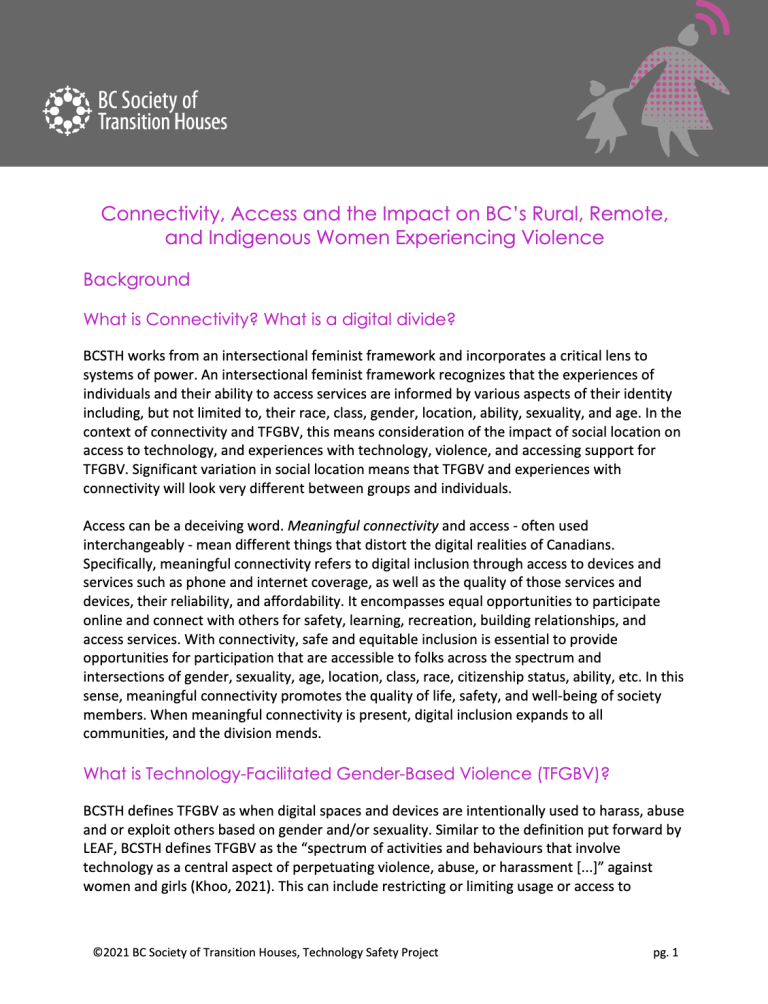5 search results
for
Children and youth
For government
Women and Girls in Rural, Remote, and Indigenous (RRI) communities face added barriers to meaningful connectivity due to their rurality.
Recommendation 6: Revise policies relating to connectivity and expansion goals in order to recognize gender-based and intersectional elements of digital divides, as well as how these relate to violence and anti-violence work. Shift work related to connectivity from a conversation that focuses mainly on economic inclusion and opportunities to one where gender equality and safety is also central.-
Category and theme:
For BCSTH, government, advocacy organizations and NGOs
Lack of meaningful connectivity negatively impacts both service providers and service users.
Recommendation 8: For online training or webinars, accommodate varying levels of connectivity by providing text copies of slides (in the description, caption, etc.) in case audio cuts out for anti-violence workers tuning in from RRI communities. Provide copies of slides before the training session so that participants can attend in listen only mode.-
Category and theme:
Audience:
For BCSTH, antiviolence organizations/member programs
Lack of meaningful connectivity negatively impacts both service providers and service users.
Recommendation 10: Provide spaces for anti-violence workers and organizations in RRI communities to collaborate, interact, and share their experiences in the spirit of mutual support and solidarity; support the implementation of communities of practice for rural membership such as the Safehomes Community of Practice for rural members that BCSTH is organizing. One anti-violence worker voiced that the development of this kind of interaction would be helpful to countering at times urban centric policies and systems.-
Category and theme:
Audience:
For BCSTH, governments, schools, NGOs, anti-violence organizations
Unique contexts specific to RRI communities result in a different significance of meaningful connectivity, as well as distinct challenges, for women in these communities.
Recommendation 13: Incorporate information about online misogyny into technology literacy resources for youth to account for unsafe online spaces and support them in safely navigating the internet.-
Category and theme:
Audience:
For BCSTH, anti-violence organizations, government
Unique contexts specific to RRI communities result in a different significance of meaningful connectivity, as well as distinct challenges, for women in these communities.
Recommendation 16: Incorporate disaster and emergency planning in anti-violence programs’ policies.-
Category and theme:
Audience:
